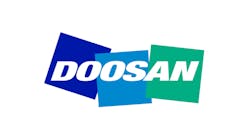Rivals Airbus and Boeing are both counting their successes as the biennial Paris Air Show came to an end this week, though Airbus far outdistanced Boeing in the volume and value of its new jet orders. The European commercial aircraft group reported more than $72 billion in new orders or commitments from carriers, notably from Asian-based airlines.
The largest new order announced this week, and reportedly the largest order ever placed for commercial aircraft, is one from AirAsia for 200 of the new A320neo jet, a new, more fuel-efficient version of Airbus’ current long-distance single-aisle craft. The contract is estimated by Airbus at $18.5 billion. Another, $16-billion order from India’s IndiGo airline covers 150 A320neos and 30 A320s.
Fuel economy is a notable driver in the carriers’ purchasing decisions, as Airbus now has more than 1,000 orders or commitments for the A320neo — which will not be available for delivery until 2015. U.S.-based JetBlue Airways committed to buy 40 of the A320neo’s, and changed its order for 30 A320 jets to the larger A321 model – modified with wingtips to improve fuel efficiency.
Airbus is delaying the delivery of its new wide-body A350-1000 jets until 2017, though it confirmed an exclusive engine supply deal for those planes with Rolls-Royce Plc. Rolls is developing a new version of its Trent XWB with higher-thrust capability for that design.
For its part, Boeing announced orders and commitments for 142, estimating that to be worth $22 billion. This includes a $1.7-billon order for six 777 long-haul jets from Qatar Airways and a $808-million order from Malaysia Airlines for 10 737-800s, both previously booked but unidentified by Boeing. It also announced a $4.7-billion commitment for 15 747-8 Intercontinentals and a $635-million order for two 747-8 Intercontinentals, both for unidentified customers.
Boeing’s emphasis during the event was on its larger models, as it introduced the 747-8 Intercontinental and 747-8 Freighter and exhibited the 787 Dreamliner. However, it contributed to the theme of fuel-economy by demonstrating a fuel blend with 15% biofuel for the 747-8 Freighter, marking the first transatlantic crossing of a commercial airliner using biofuel.
